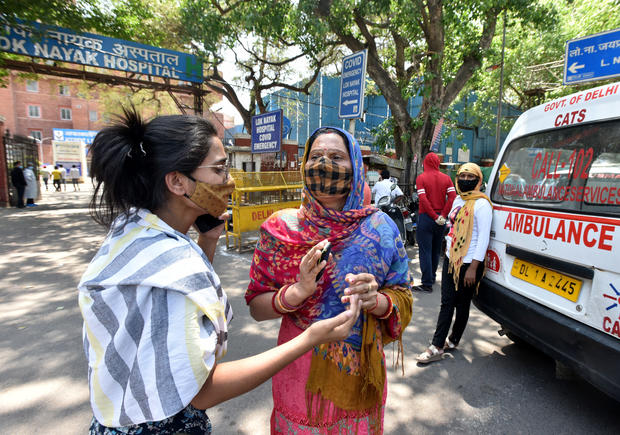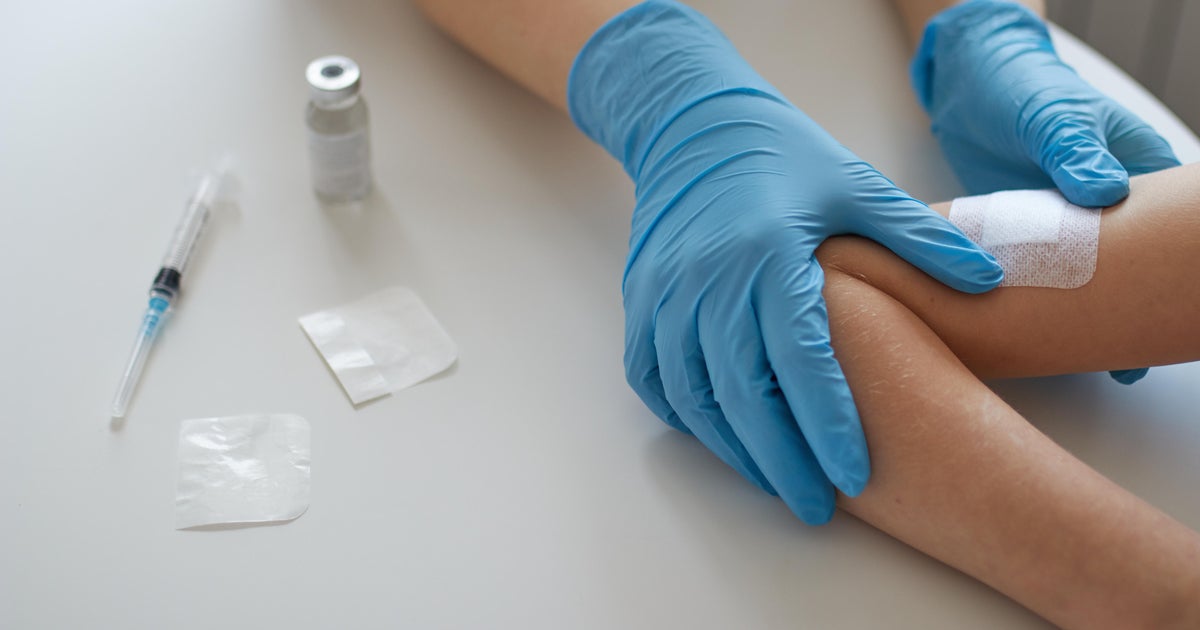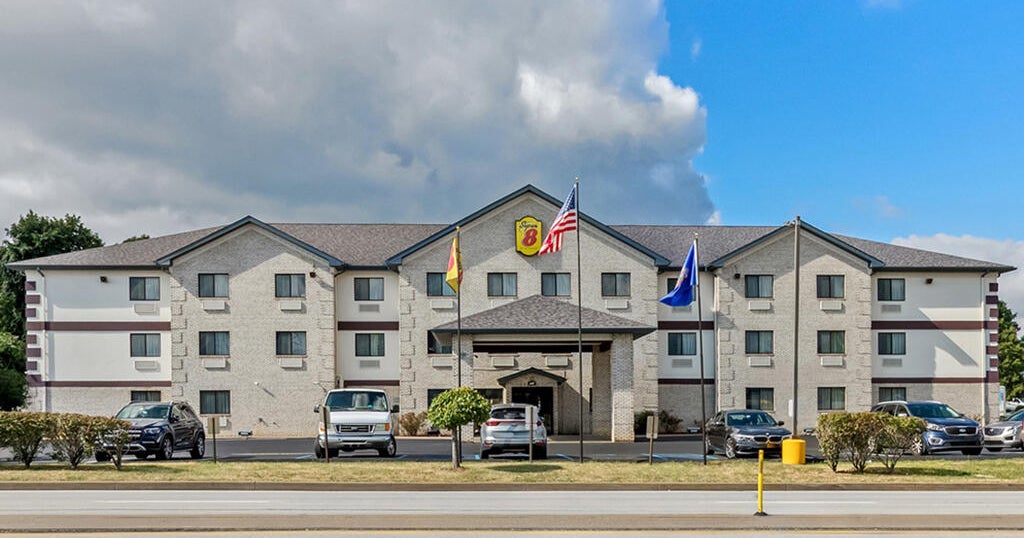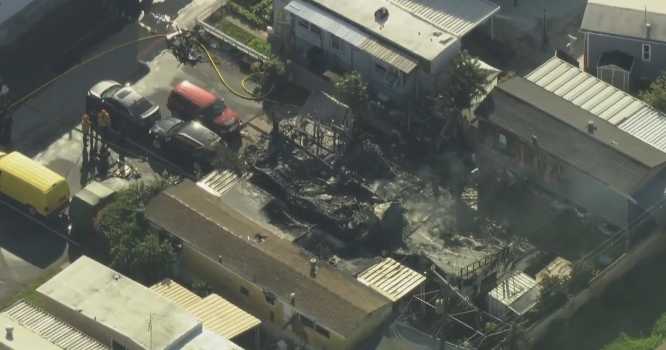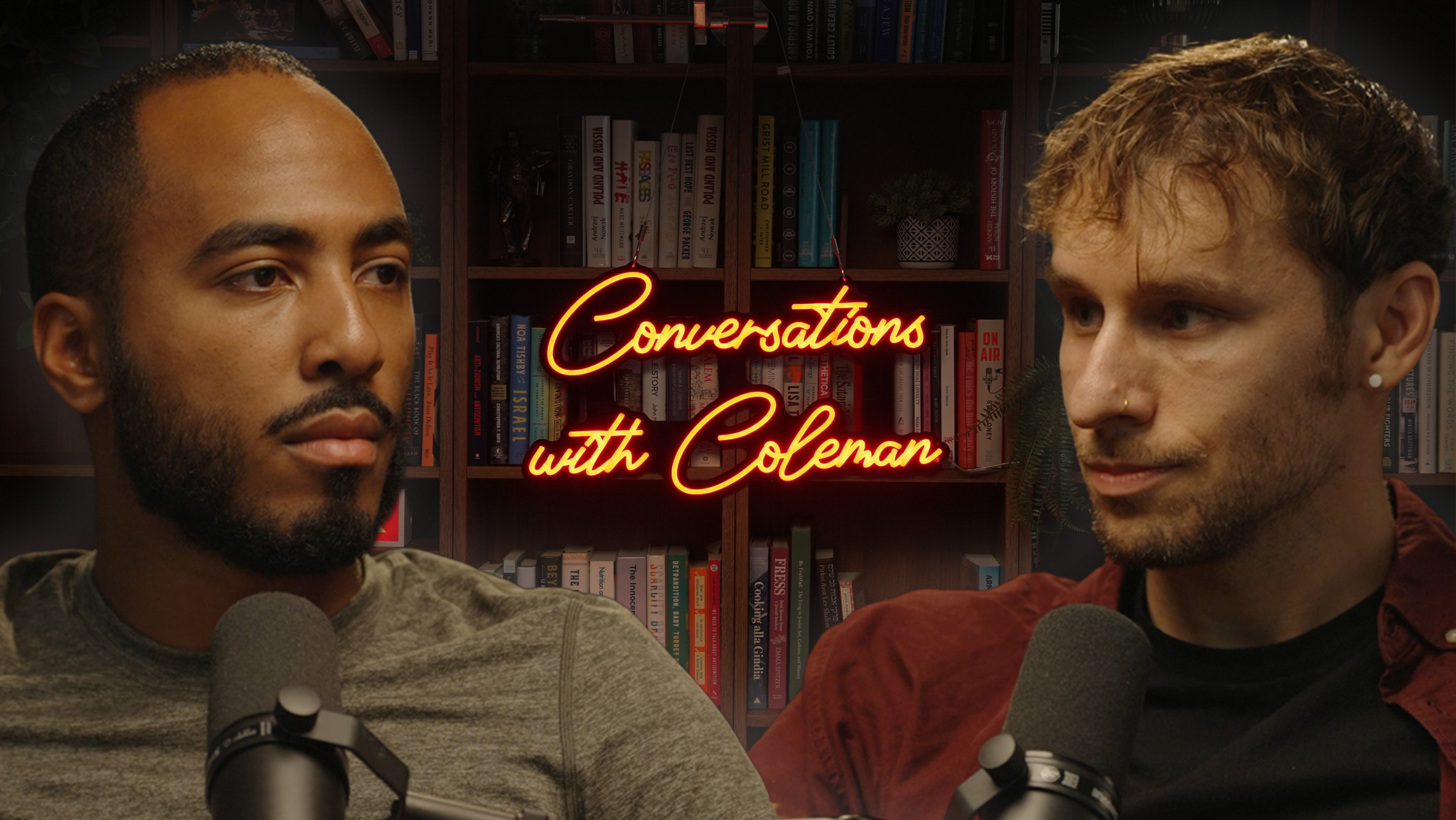Volunteers step up as India sets another record for COVID cases and foreign help doesn't come fast enough
New Delhi — Last week, when 54-year-old Suruchi Singh's coronavirus infection took a turn for the worst and she was struggling to breathe, her family scrambled to get her into a hospital, but there were no beds available. Singh's daughter panicked.
She reached out online to Gayatri Manchanda, an artist who'd recently started helping people get information on where to find vital medical resources.
"I must have made about 60 calls to different hospitals that night, but no beds were available," Manchanda told CBS News. But she and the other volunteers in her rapidly-evolving network didn't give up. They posted SOS messages on Twitter and continued calling hospitals through the night, until at last there was a breakthrough.
Singh was admitted to a hospital.
"It was such a big relief," Manchanda said of the success. But Singh was just one COVID-19 patient in a country battling the most daunting outbreak on the planet, exacerbated by acute shortages of oxygen, hospital beds and other medical supplies.
"COVID warriors"
Thousands of Indians from all walks of life have, like Manchanda, dedicated themselves and spent sleepless nights trying to help others hit by the tsunami of a coronavirus "second wave" inundating India's public health care system.
India set a world record for new coronavirus infections for the fifth consecutive day on Monday, with 352,991 new cases reported and 2,812 more deaths. The country's total caseload is now over 17.3 million, and the death toll stands at 195,123.
"We are helping hundreds of people daily, but we are still failing," said Lakshmi Mittal, a Delhi-based software designer who's also volunteering to connect people with resources the government can't provide fast enough.
The volunteers create and update databases of verified resources for everything from oxygen and key coronavirus drugs, to plasma donors and available hospital beds. All of those things are in short supply, leaving COVID-19 patients to die outside hospitals as they wait to be admitted, unable to breathe without oxygen.
Their information is shared via social media, making the volunteers virtual bridges between patients and the life-saving resources.
"Those lists have to be updated continuously," said Mittal. It's like a full-time job handling the deluge of requests for help from different cities, and many of the "COVID warriors," as the volunteers have been dubbed, are also trying to care for their own loved ones who've been struck by the disease.
"Most of us in my network haven't even met before; it's this devastation that has brought us together for a cause," Manchanda, told CBS News.
It can be harrowing work. Mittal told CBS News she was left depressed recently when she failed to get help to a 92-year-old patient in time.
Devendra Kumar, a resident of hard-hit Delhi, spent three days phoning around, desperately trying to track down an oxygen tank refill and the drug Remdesivir as his father-in-law, 70, got worse.
He found nothing, and as his father-in-law has diabetes and high blood pressure, he started to panic. Finally Kumar posted an SOS message on social media, and a group of volunteers reached out to him. They scrambled their resources and were able to get Kumar's father-in-law the help he needed.
"But it doesn't work like that every time," an airline pilot-turned-COVID warrior, who didn't wish to be named, told CBS News. "When it does, it gives me so much satisfaction that I have been able to help someone... it's a thrill."
Promises of help
Medical oxygen started running low at least a week ago, but as of Monday it was one of the most desperately needed resources in India. Several hospitals in Delhi have sent out repeated SOS appeals, even asking courts to intervene to procure the life-saving gas.
At least 20 critical COVID patients died at Delhi's Jaipur Golden Hospital on Friday due to an oxygen shortage.
Over the weekend, the world stepped up to help. A range of equipment and supplies, including cryogenic oxygen cylinders, oxygen concentrators, generators and ventilators have been promised and, in some cases, already loaded onto planes from the United States, the U.K., Singapore, Russia, and Saudi Arabia.
"Just as India sent assistance to the United States as our hospitals were strained early in the pandemic, we are determined to help India in its time of need," President Joe Biden tweeted late on Sunday.
The White House said the U.S. was also "pursuing options to provide oxygen generation and related supplies [to India] on an urgent basis."
"The best in our society"
Despite the pledges of help, there's been no immediate improvement in India's bleak situation. Protests broke out on Monday at a hospital in Haryana state after the early morning deaths of five coronavirus patients. Their families said a shortage of medical oxygen was to blame.
It will take days, at least, for oxygen supplies to get better. Until then, the scramble for resources continues, and with it the overwhelming demand for the help of the COVID warriors.
Another volunteer, a Mumbai based architect who also didn't want to be named, is specifically helping pregnant women find hospital beds amid the crisis. She said a man called her recently begging for help to find a hospital bed for his 9-month-pregnant, COVID-positive wife in Mumbai, who was feeling labor pains.
"He was literally crying and begging for help," the architect told CBS News. The volunteer was able to find her a bed and the next morning, she had a baby girl.
"It has taken a calamity like this to bring out the best in our society," the architect said.
Volunteers aren't just helping to find hospital beds and oxygen. Some of the groups are sending free packed meals to COVID patients stuck isolating at home without any family to help. Others have offered help delivering essential supplies to homes, and CBS News spoke to Arundhati Kane, psychologist in Mumbai who's started counselling doctors, caregivers and patients for free.
"Most people just need somebody to speak to as there is a lot of anxiety about what will happen next," said Kane "There is fear of getting infected, there is the stress of losing your patients and your family members."
